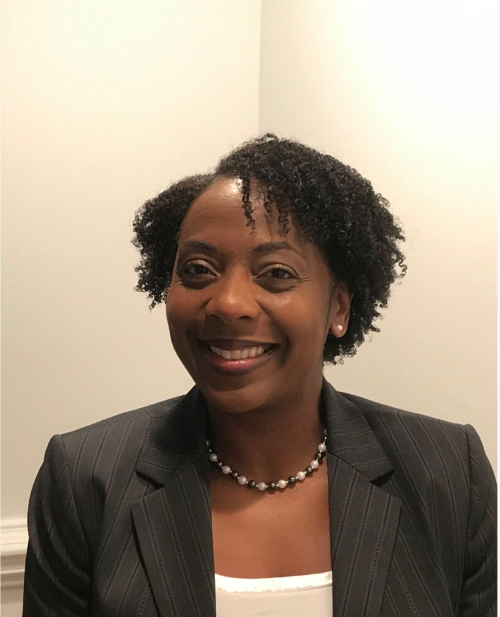Critical Conversations: Discussing Race at Work
By Kris Britton (’99, MBA 2019)
Kris Britton is the CEO of Lucky Dog Volleyball, the official championship event merchandiser for USA Volleyball. Based in Greensboro, NC, the firm is 100% owned and operated by women. Kris volunteers with NCCJ Triad, a non-profit organization committed to fighting bias, bigotry and racism.
The year 2020 has presented Americans with a deep political divide, a deadly pandemic and nationwide protests of racial injustice. As chants of “Black Lives Matter” echo across the nation, executives have scurried to issue carefully crafted public statements and company-wide emails that admonish racism and pledge support for the black community. As the CEO of Lucky Dog Volleyball, a small championship event merchandiser for USA Volleyball, I wanted to create a plan to align our business activities with anti-racism by addressing any policies and practices that lead to racial disparities, before issuing any statements of support. I wanted to ensure we were poised to walk the walk. Not doing so would have felt inauthentic.
In his book How to Be an Antiracist, Ibram Kendi distinguishes “not racist” from anti-racist, as a function of action or inaction. Simply being “not racist,” according to the author is not enough, as it doesn’t address the systematic inequalities created by racist policies. Anti-racism, by contrast, involves actively addressing policies that lead to racial inequities. In order for Lucky Dog to become anti-racist, I felt that our staff needed to first discuss issues of race explicitly. How could we effectively perform the tasks of becoming an anti-racist organization if we couldn’t first discuss racism as individuals who have been impacted differently by the social inequities it produced? The often uncomfortable conversations that resulted have become the building blocks for our journey towards becoming an anti-racist firm.
While discussing race in the workplace can be intimidating, the benefits are worth the grapple. At Lucky Dog, we live by a few guidelines that help make these conversations more meaningful and a bit easier to manage.
Start From Within
We each began by working from the inside out. This required each employee to self-reflect and identify their own biases, ignorance and racism. The first couple of weeks was reserved for individual exploration and assessment. It is easier to admit your short-comings to yourself before disclosing them in a group setting.
Customized Starting Points
We each spent time with the resources that resonated with us individually. One staff member took Harvard’s implicit bias test and began reading Debbie Irving’s Waking Up White. Another staffer delved into Emmanuel Acho’s video series Uncomfortable Conversations with a Black Man and then began Robin DiAngelo’s White Fragility. I personally listened to Kendi’s How to Be an Antiracist on Audible during my morning runs. This customized approach allowed each of us to begin our work from our individual contexts. We meet weekly and discuss our insights and epiphanies. The information sharing is both informative and inspiring. Allowing people to select their resources makes the journey more relevant and impactful.
Professional & Personal Curiosity
We question everything about ourselves and others. This requires creating a safe space for people to ask questions in a space free of judgment. We invite curiosity by encouraging each other to “ask me anything.” Then we answer those questions thoughtfully, careful not to judge the question nor the answer.
Guilt Has No Home Here
We are constantly looking to improve, which means we often identify our shortcomings. We give our deficiencies the attention they require, but we don’t allow guilt to rule us. It’s okay to acknowledge our disappointment in ourselves, but we recognize that operating in guilt leads to inefficiency. We forgive ourselves and each other and pledge to get better.
What’s Next For Lucky Dog?
While we are in the process of crafting a corporate statement that inspires with words of solidarity, our actions will become the true measure of our anti-racist support.

